All Articles
4 min read
“You Don’t Look Disabled!” Our Survey on Disability and Taboos

Written by
Purpl
Published on
February 6, 2025
In January 2025, Purpl conducted a survey among 446 disabled people to understand the taboos and misconceptions surrounding disability. The findings reveal widespread assumptions, avoidance of certain topics, and the impact of societal perceptions on disabled people.
First Impressions & Assumptions
When meeting a disabled person for the first time, many people ask intrusive and inappropriate questions, such as:
- “What is wrong with you?”
- “You don’t look disabled?”
- “What happened?”
Most disabled people prefer more considerate and open-ended conversations, such as:
- “How are you?”
- “Do you need any help?”
The survey revealed that 60% of disabled people feel others assume they are sad about their disability, and 57% feel people assume they are not independent. Additionally, 30% of disabled people believe others avoid looking at them out of perceived politeness.
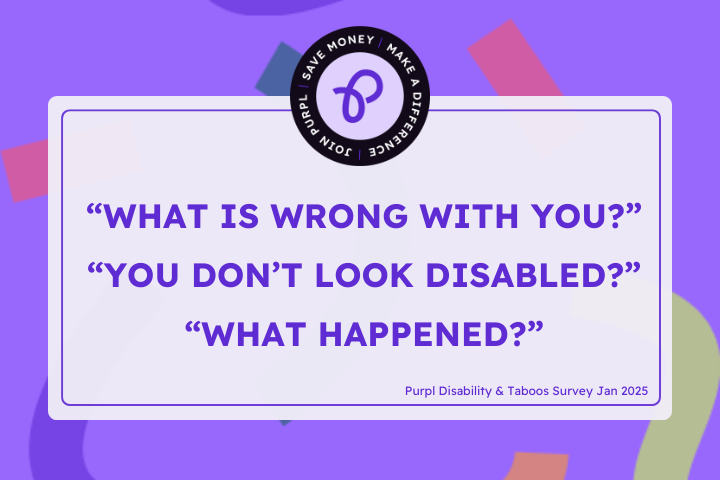
Topics People Avoid Talking About with Disabled People
Many disabled individuals feel that people deliberately avoid certain discussions due to discomfort or fear of saying the wrong thing. 32% of respondents think people definitely avoid specific subjects, while 42% believe people sometimes do.
The most commonly avoided topics include:
- Illness (57%) – Over half of the respondents felt other people steered clear of discussions about health
- Sport and fitness (47%) – Many feel their own ability to engage in physical activities is assumed to be limited
- Work (39%) – A significant number of disabled people feel that others hesitate to discuss careers and professional aspirations with them
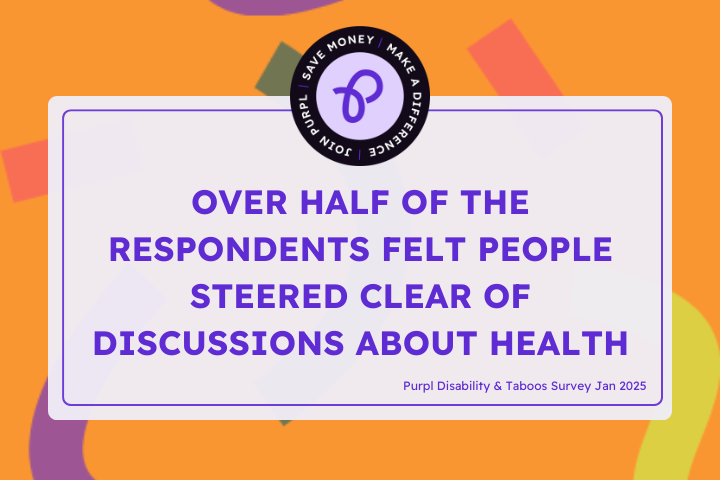
Disability, Romance, and Sex
The survey also explored relationships and intimacy, shedding light on common assumptions and experiences among disabled individuals.
- Relationship status: 47% are married, 17% are in a relationship, and 30% are single
- Avoiding sex talk: 29% believe people avoid discussing sex with them
- Impact on romance: 64% believe their disability has affected their romantic life
- Sexual intimacy: 48% have been sexually intimate in the past six months, while 43% have not
- Sex toy usage: 52% have used sex toys, while 31% have not, and 4% are open to trying them in the future
- Assumptions about sex: 27% feel that people assume they do not have sex
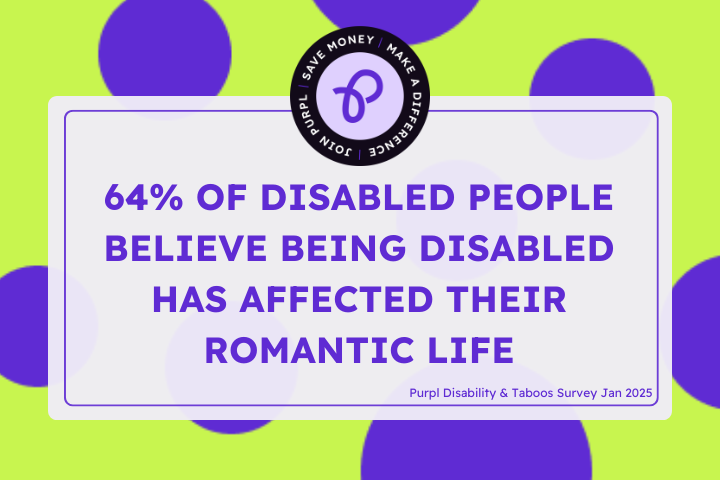
The “Inspirational” Label
While some people may think calling a disabled person “inspirational” is a compliment, not everyone welcomes it. The survey found that 24% of disabled people dislike being called inspirational, and 17% actively hate it. Meanwhile, 30% have no strong feelings about it. This suggests that while some appreciate the recognition, others find it patronising or inappropriate.

Representation on TV
Media representation of disabled people, particularly in dating shows, remains a divisive issue. 34% of respondents are unhappy with how disabled people are portrayed on dating shows specifically focused on the disabled community. Meanwhile, 40% are unsure about the representation, and only 13% are satisfied.

Breaking the Taboos
This survey highlights how deeply ingrained misconceptions about disability still are in society. From first impressions to dating and sex, disabled individuals encounter assumptions and avoidance that can be alienating.

Georgina’s Thoughts
“I’ve always been a strong independent person so I find it really frustrating when someone gives me a funny look because I am using walking sticks, or says to me ‘oh poor you’ – it’s so condescending and pitiful. My disability might be challenging at times, and I might not be able to do all the things I used to do but I feel lucky – I am the healthiest I’ve ever been, I have a lovely home, a supportive family and now I have Purpl. I don’t need anyone’s pity, I truly believe everything happens for a reason and this is my path. For me, I just try to make everyday as great as it can be.”
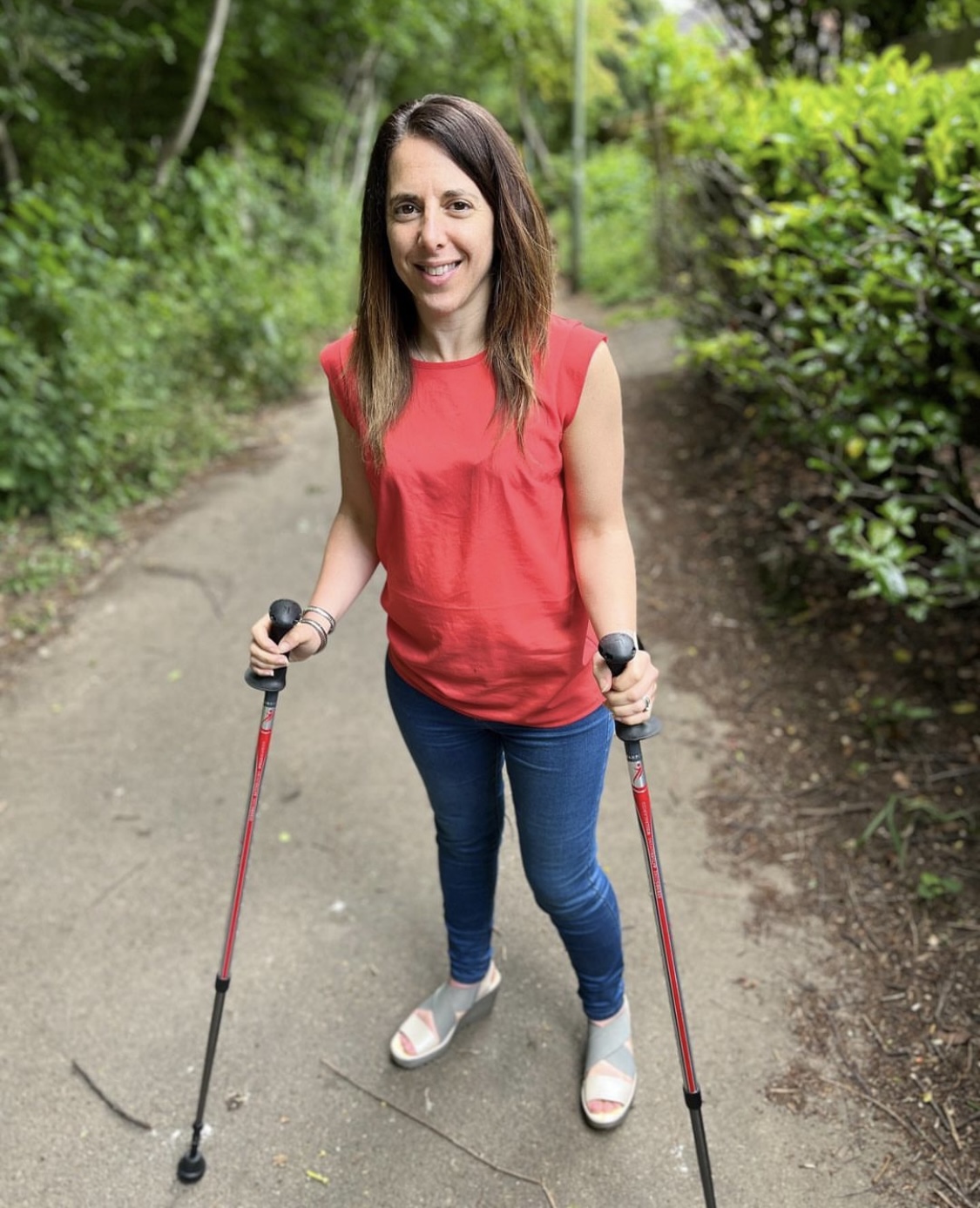
Sam’s Thoughts
“As a disabled woman who has a chronic illness that sometimes is quite invisible and sometimes requires me needing to use mobility aids or a wheelchair, I feel like I have witnessed and lived through a lot of ableism in my life. The awkward questions, the barriers and the ignorance in believing that if I am a wheelchair user, I cannot possibly be independent or a sexual being!
Though this survey isn’t surprising to me, it is disapointing to know that so many people in the disabled community are still facing their normal lives being made to be taboo. I am grateful to work for Purpl and be amongst people who want to make a positive difference to the world.”
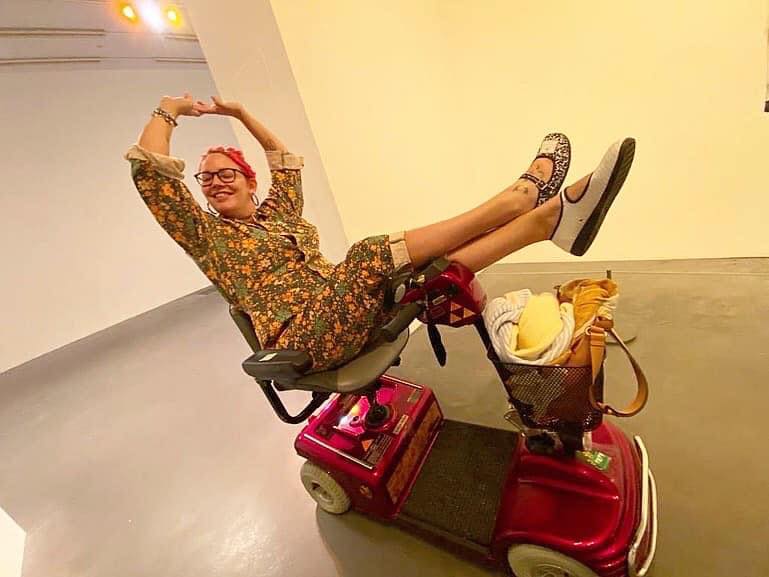
Greater awareness and open conversations can help dismantle these taboos. Rather than making assumptions or avoiding certain topics, asking respectful questions and treating disabled people as individuals, without reducing them to their disabilities, can lead to more meaningful interactions and inclusive communities.
We are grateful to our incredible Purpl members who supported us with our survey, Purpl is a disabled-led business that aims to make a positive impact with, not for, the disabled community. We help disabled people save money to attempt to offset the extra costs of living as a disabled person and we have a range of guides around disability benefits and money-saving advice. We are also giving back to charities and we are trying to change perceptions and break taboos around disability! If you are a disabled person in the UK, join Purpl today!
More Disabled Discounts
Lovehoney Disabled Discount Code: 20% off all orders
Glamsticks Disabled Discount Code: 10% off for new customers
Currys Disabled Discount Code: 10% off Shark Beauty
Ninja Disabled Discount Code: 9% off including sale items
Easyjet Holidays Discount Offer: Up to £300 off your next holiday

